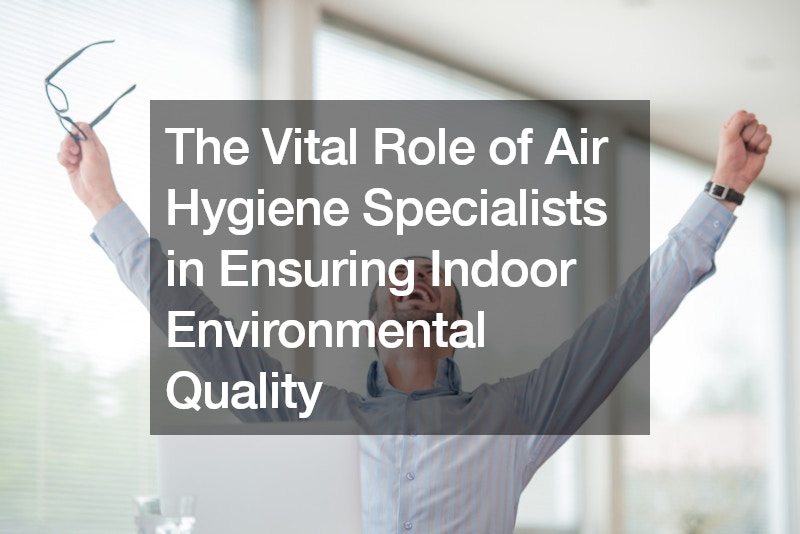The Vital Role of Air Hygiene Specialists in Ensuring Indoor Environmental Quality
In an era where environmental concerns are at the forefront of public discourse, the importance of maintaining high air quality indoors cannot be overstated. Enter the air hygiene specialist, a professional dedicated to safeguarding indoor environments from harmful pollutants and ensuring the health and well-being of occupants. With their expertise in assessing, monitoring, and improving indoor air quality (IAQ), air hygiene specialists play a vital role in creating healthy and safe indoor spaces across various sectors.
Air hygiene specialists are tasked with evaluating indoor air quality to identify potential pollutants and sources of contamination. They utilize a range of techniques and instruments, including air sampling and monitoring equipment, to gather data on pollutant levels such as volatile organic compounds (VOCs), particulate matter, and allergens. By analyzing this data, they can assess the overall air quality and pinpoint areas for improvement.
One of the primary responsibilities of air hygiene specialists is to develop strategies to mitigate indoor air pollution and improve IAQ. This may involve recommending measures to enhance ventilation systems, such as increasing airflow or installing air filtration systems. Additionally, they may advise on the removal or mitigation of specific sources of pollution, such as mold, asbestos, or chemical contaminants. By implementing these strategies, air hygiene specialists contribute to creating healthier indoor environments that promote occupant well-being.
Collaboration is key for air hygiene specialists, as they often work alongside architects, engineers, building managers, and environmental health professionals to address IAQ concerns comprehensively. By coordinating efforts with other stakeholders, they can develop holistic solutions tailored to the unique needs of each indoor environment. Whether it’s designing ventilation systems for new construction projects or conducting IAQ assessments in existing buildings, teamwork is essential for achieving optimal indoor environmental quality.
In addition to their technical expertise, air hygiene specialists possess strong communication and interpersonal skills. They must effectively communicate their findings and recommendations to clients, building occupants, and other professionals in a clear and understandable manner. Whether it’s explaining the implications of poor IAQ or outlining the steps needed to improve air quality, effective communication is crucial for fostering collaboration and ensuring that everyone involved understands the importance of IAQ management.
Continuous education and professional development are integral parts of a career as an air hygiene specialist. Given the ever-evolving nature of indoor air quality science and technology, staying abreast of the latest research findings, regulations, and industry best practices is essential. Air hygiene specialists may pursue certifications, attend conferences, and participate in training programs to enhance their knowledge and skills and maintain their proficiency in the field.
The demand for air hygiene specialists is expected to grow as awareness of indoor air quality issues continues to rise. With increased scrutiny on indoor environments in the wake of events such as the COVID-19 pandemic, there is a growing recognition of the importance of IAQ management in mitigating health risks and promoting occupant well-being. As such, air hygiene specialists play a critical role in helping businesses, schools, healthcare facilities, and other organizations create healthier indoor environments for their occupants.
In conclusion, air hygiene specialists are indispensable professionals dedicated to ensuring high indoor air quality and promoting occupant health and well-being. Through their expertise in assessing, monitoring, and improving IAQ, they contribute to creating safe, healthy, and comfortable indoor environments across various settings. By collaborating with stakeholders, communicating effectively, and staying abreast of industry developments, air hygiene specialists help to address the challenges posed by indoor air pollution and pave the way for a healthier future.
.
